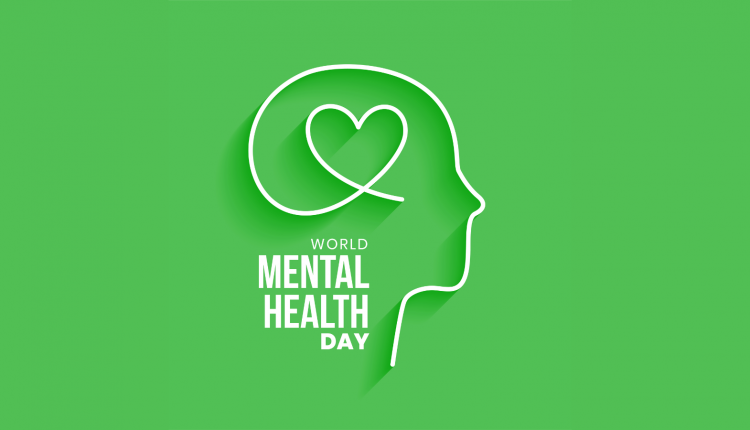World Mental Health Day 2024: Mental Health Matters at Work
Supporting Minds in the Workplace
Mental health is a crucial part of our overall well-being, yet it often doesn’t receive the attention it deserves. It influences how we think, feel, and act, shaping the way we navigate through life’s challenges and joys. In today’s fast-paced world, mental health issues are becoming more widespread, affecting individuals and communities in profound ways. World Mental Health Day, celebrated annually on October 10th, provides a vital opportunity to raise awareness, promote open conversations, and foster a greater understanding of mental health.
Understanding Mental Health
Mental health encompasses our emotional, psychological, and social well-being. It influences everything from how we handle stress, relate to others, and make decisions. Mental health is not just the absence of mental illness, but a state of well-being where individuals realize their abilities, cope with the normal stresses of life, work productively, and contribute to their communities.
While mental health is important at every stage of life, it can fluctuate due to life circumstances, societal pressures, and personal experiences. A person’s mental health can be impacted by a range of factors, such as:
- Genetic predispositions
- Traumatic life experiences
- Chronic stress
- Physical health conditions
Everyone experiences mental health challenges at some point in their lives, whether it be stress, anxiety, or periods of depression. However, the stigma surrounding mental health issues still prevents many from seeking the help they need. Open dialogues and supportive environments can help break down these barriers and encourage more people to prioritize their mental well-being.
The Importance of Addressing Mental Health
Maintaining good mental health is essential for leading a balanced, fulfilled life. When mental health deteriorates, it can lead to serious consequences, including substance abuse, self-harm, or even suicide. Untreated mental health conditions can negatively impact physical health, contributing to chronic diseases like heart disease, diabetes, and obesity. They also affect interpersonal relationships, job performance, and overall quality of life.
According to the World Health Organization (WHO), one in four people worldwide will be affected by mental health issues at some point in their lives. This means that mental health isn’t just a personal issue—it’s a global one, requiring collective action from individuals, communities, and governments.
Mental Health and the Workplace
In 2024, the theme for World Mental Health Day centers around workplace mental health, emphasizing the importance of creating environments that foster mental well-being at work. With people spending a significant portion of their lives in the workplace, the mental health of employees should be a top priority for employers, as a healthy workforce leads to better productivity, creativity, and overall company success.

Why Workplace Mental Health Matters?
Workplaces can significantly influence an individual’s mental health. A positive work environment can offer a sense of purpose, camaraderie, and stability. On the other hand, toxic or high-pressure workplaces can lead to stress, anxiety, depression, and burnout. Here’s why addressing mental health at work is so crucial:
- Prevalence of Work-Related Stress
Work is a major source of stress for many individuals. Long hours, tight deadlines, high expectations, and heavy workloads can lead to chronic stress, impacting both mental and physical health. In 2022/23, approximately 875,000 workers reported suffering from work-related stress, depression, or anxiety, a significant figure that highlights the growing need for mental health support in the workplace. - Impact on Productivity and Retention
Poor mental health doesn’t just affect the individual; it has a ripple effect on the entire organization. Employees suffering from mental health conditions may struggle to stay focused, meet deadlines, or collaborate effectively with their teams. This can lead to reduced productivity and increased absenteeism, with mental health being the fifth most common reason for sickness absence in 2022. Companies that fail to address these issues may also see higher turnover rates as employees seek healthier work environments elsewhere. - Fostering a Positive Work Culture
Companies that prioritize mental health create a supportive and inclusive work culture where employees feel valued and understood. This boosts morale, enhances team dynamics, and cultivates loyalty. Employers who take proactive steps to promote mental well-being are more likely to attract and retain top talent, as well as inspire greater employee engagement.
The Role of Employers in Promoting Mental Health
Employers have a responsibility to create an environment that not only supports but actively promotes mental health. Here are key strategies that companies can implement to improve workplace mental health:
- Open Communication Channels
Creating a workplace where employees feel comfortable discussing their mental health is critical. Employers should encourage open dialogues about mental well-being, free of judgment or stigma. This can include offering regular check-ins, employee surveys, and anonymous feedback platforms. - Flexible Work Arrangements
Flexibility is one of the most effective ways to reduce workplace stress. Offering flexible working hours, remote work options, or hybrid work models can help employees better balance their personal and professional lives, reducing feelings of burnout and anxiety. - Mental Health Resources and Support
Providing access to mental health resources is essential. This can include offering employee assistance programs (EAPs), mental health days, access to therapy or counseling services, and mental health workshops or training sessions. - Workload Management
Employers should ensure that workloads are manageable and that employees have access to the resources and support they need to succeed. Clear communication around expectations, fair distribution of tasks, and regular feedback can help prevent overwhelm and reduce stress. - Training for Managers and Leaders
Managers and leaders play a pivotal role in shaping workplace culture. Offering mental health training to leadership can help them recognize early signs of distress in employees, encourage healthy work-life balance, and provide support where needed.
Employees and Mental Health at Work
While employers hold significant responsibility in fostering a healthy work environment, employees also have a role to play in managing their mental well-being. Here are some strategies employees can adopt:
- Setting Boundaries
Clear boundaries between work and personal life are crucial to maintaining balance. Employees should prioritize regular breaks, avoid working beyond set hours, and ensure that they’re taking time for self-care. - Seeking Help Early
Recognizing early signs of stress, anxiety, or depression and seeking help promptly can prevent the escalation of mental health issues. Whether through workplace resources or external support, early intervention is key. - Building a Support Network
Having supportive colleagues can make a huge difference in workplace mental health. Building strong relationships with co-workers, participating in team activities, and being there for one another can foster a sense of belonging and reduce feelings of isolation.

The Future of Workplace Mental Health
As mental health becomes a more prominent topic in both society and workplaces, we can expect to see significant changes in how organizations address mental well-being. With remote work becoming increasingly common, companies will need to find new ways to stay connected with employees and ensure their mental health is supported, regardless of physical location.
In the future, workplaces may also invest more in preventative mental health measures, such as mindfulness programs, regular wellness check-ins, and company-wide mental health initiatives. As more organizations understand the direct link between employee well-being and organizational success, mental health is likely to become a core element of corporate strategies.
Mental Health Awareness Beyond the Workplace
While workplace mental health is this year’s focus, it’s crucial to remember that mental well-being extends beyond the professional sphere. Factors such as family dynamics, financial struggles, societal pressures, and personal health challenges can all affect a person’s mental state. These stressors often interact with work-related stress, exacerbating mental health issues. Encouraging a holistic approach to mental health, where employees feel empowered to seek help for issues outside of work, can greatly enhance their overall well-being. Employers can contribute by promoting work-life balance and offering resources that support mental health both in and out of the workplace.

Additionally, raising awareness about mental health in the broader community is essential. Schools, universities, healthcare settings, and public spaces can all play a part in destigmatizing mental health issues. By building supportive networks in all areas of life, individuals are more likely to receive the care and understanding they need to navigate mental health challenges. Events like World Mental Health Day offer an opportunity for broader societal reflection, sparking conversations that might otherwise remain overlooked.
The Power of Collective Action
Addressing mental health, whether in the workplace or the wider community, requires a collective effort. Governments, organizations, and individuals all have a role to play in promoting mental health awareness and providing the necessary support. Policymakers can implement regulations to ensure that workplaces adhere to mental health standards and offer resources such as accessible therapy and mental health care. Communities can organize local support groups and awareness campaigns, while individuals can check in on each other and encourage open dialogues about mental health.
By taking collective action, we can foster a world where mental health is prioritized, understood, and supported—creating healthier, happier environments for everyone. As we celebrate World Mental Health Day, let’s commit to making mental health a permanent part of the conversation, both in and outside of the workplace.
World Mental Health Day 2024 brings attention to the crucial role that workplaces play in promoting mental health. With the right support systems, resources, and a culture that encourages open discussions, workplaces can become spaces where employees thrive mentally and emotionally. By prioritizing mental health at work, we not only enhance the lives of individuals but also improve organizational performance and foster healthier, happier communities.
Let’s continue this important conversation beyond World Mental Health Day, ensuring that mental health remains at the forefront of workplace culture for years to come.

